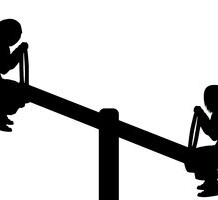What Causes Depression? The Nature Vs Nurture Argument
|

|
What Causes Depression? Life Events or Chemical Imbalances?
What causes depression? On one hand, one school of thought is that a depressed person is merely reacting badly to the problems and situations he or she is facing in life. On the flip side, there is the theory that depression is a physical problem, whereby depression is caused by a chemical imbalance in one’s brain.
Either of these views is simplistic and extreme. It’s like saying nature or nurture alone determines the personality or physical constitution of a person; the truth of the matter is that both genes and the environment play a part in shaping the way a person turns out. Similarly, when it comes to depression’s causes, there are two equally important sides of the coin, and psychosocial and biophysical factors both contribute to the onset of depression. In essence, depression is a whole person condition, encompassing the mind, body and spirit of a person.
Research in 1993 on thousands of twins – both identical and non-identical – at the Medical College of Virginia by Kenneth Kendler et al pointed out nine important factors which contributed to depression in a subgroup of female twins, and the top two factors were stress and genes. The study concluded that major depression “is a multi-factorial disorder, and understanding its etiology will require the rigorous integration of genetic, temperamental, and environmental risk factors.”
Do negative life events such as trauma, loss and grief, and conflict contribute to the development of depression in a person? Yes, research has established this to be the case, even for bipolar disorder, which is strongly linked to a chemical imbalance.
How about physical causes of depression, such as related medical ailments, chemicals and drugs, as well as nutritional deficiencies? Is there research showing connection between these factors and depression? Indeed, there are also many studies which do.
In life, many of us face other emotional issues, such as low self-esteem, lack of spiritual faith, lack of life meaning or purpose, learned helplessness, etc which can lower one’s resistance to adverse life events and thus make one more susceptible to a bout of depression. At the same time, certain genetic factors can also reduce one’s ability to deal with the various emotional and mental storms of life, thus increasing one’s risk of suffering from depression.
Nature vs Nurture
Research by Kendler and Prescott in 1999 looked at depression in identical as well as non-identical twins. In total, they studied almost 4,000 pairs of twins of both genders, and found that the probability of identical twins sharing a history of major depression was almost twice that of non-identical twins. An estimated 39% of the development of major depression could thus be linked to genetic factors.
This further suggests that a whopping 61% of depression is connected to environmental factors instead. In this nature vs nurture argument, such numbers give hope to those who are born with the “wrong genes”, so to speak!
Main Resource
Baumel, Syd. Dealing With Depression Naturally. New York, NY: McGraw-Hill, 2000. Print.
Pages: 1 2
|
Follow this site
|

















Recent Comments